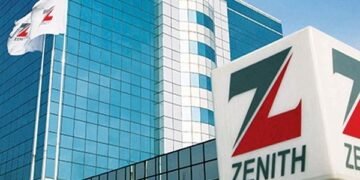In April 2021, NAICOM (National Insurance Commission) and the Federal Fire Service (FFS) resolved amongst other things to commence the enforcement of compulsory public building liability insurance across Nigeria.
This was agreed when the Controller-General of the FFS, Dr. Ibrahim Liman paid a courtesy visit to the NAICOM Head Office in Abuja. During the visit, Dr. Liman expressed his worry for the lack of compliance to fire safety rules and fire outbreaks in the country.
Liman had informed the CEO of NAICOM on the statutory ought to be remitted to the Fire Service which had not been forthcoming.
The fund that is supposed to be remitted to us from NAICOM has not been coming. My appeal to you is that NAICOM can assist the Fire Service especially the State Fire Services who are poorly funded in the areas of fire trucks rehabilitation, fire stations rehabilitation, training and retraining of staff and even providing uniforms where the need be – Dr. Ibrahim Liman
Mr. Olorundare Thomas, the NAICOM boss acknowledged the fact that the law enables NAICOM to fund the activities of the Fire Service.
We have a regulatory responsibility, the law also enable us to fund the activities of the Fire Service but because there has not been enough enforcement, the funds are not coming, but the potential is quite huge – Mr. Thomas.
What does the law say and which buildings are affected?
The Insurance requirements of public buildings in Nigeria is covered by section 65 of the Insurance Act of 2003.
The law defines “public building” to include a tenement house, hostel, a building occupied by a tenant, lodger or licensee and any building to which members of the public have ingress and aggress for the purpose of obtaining education or medical service, or for the purpose of recreation or transaction of business.
- Read also; Sovereign Trust Insurance Plc grows Profit after tax by 43% in Q1 2021
- Chinese firm injects $1.1bn into Lekki port, owns 75% stake
Section 65 of the Insurance Act of 2003 – Insurance of public buildings:
- Every public building shall be insured with a registered insurer against the hazards of collapse, fire, earthquake, storm and flood.
- “Public building”, in this section includes a tenement house, hostel, a building occupied by a tenant, lodger or licensee and any building to winch members of the public have ingress and aggress for the purpose of obtaining educational or medical service, or for the purpose of recreation or transaction of business.
- The insurance policy under subsection (1) shall cover the legal liabilities of an owner or occupier of premises in respect of loss of or damage to property or bodily injury or death suffered by any user of the premises and third parties.
- 0.25 percent of the net premium received by every direct insurer on policies issued under subsection (1) of this section shall be paid quarterly by every insurer into a Fire Services Maintenance Fund which shall be established, administered and disbursed by the Commission for the purpose of providing grant or equipment to institutions engaged in fire fighting services.
- An insurer who defaults in making payment as required under subsection (4) of this section commits an offence and is liable on conviction to a fine ten times the amount payable provided that persistence in non-compliance with the provision shall be a ground for the cancellation of registration of an insurer.
- An occupier or owner of premises who is in default of this section commits an offence and is liable on conviction to a fine of not more than N100,000 or to imprisonment for one year or both.
- A person who intends to insure any other property located in Nigeria, whether movable or immovable, or any insurable interest or liability in relation thereto, shall place such an insurance with all insurers registered in accordance with this Act who may, subject to the provisions of this Act, reinsure such property or liability overseas where the Nigerian insurance industry lacks the capacity to retain the risk.
- A person who contravenes the provision of subsection (7) of this section commits an offence and is liable on conviction to a fine equivalent to ten times the amount of premium paid in respect of the policy.
Nnamdi Maduakor is a Writer, Investor and Entrepreneur


























































